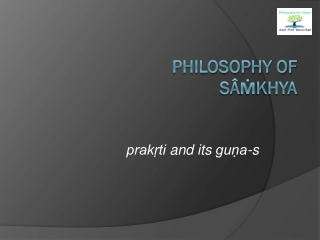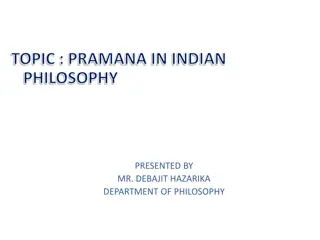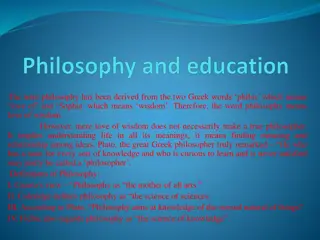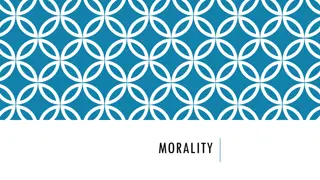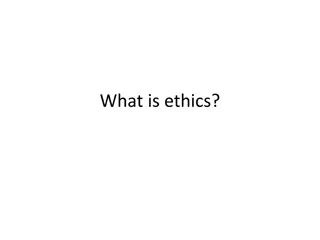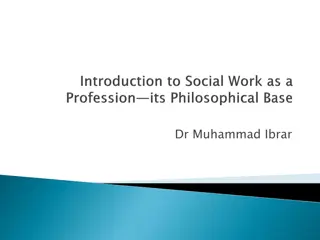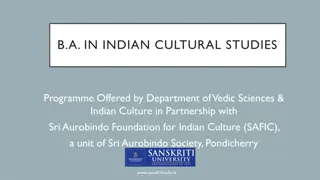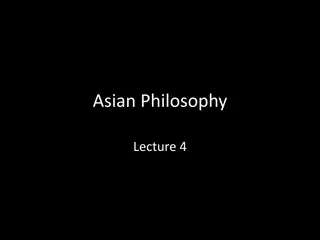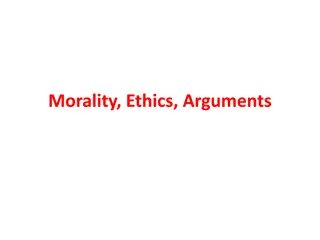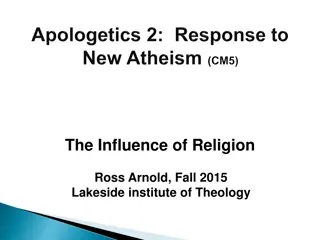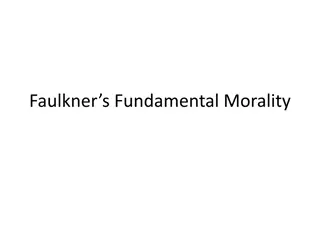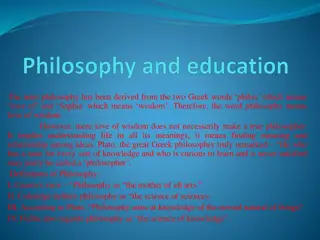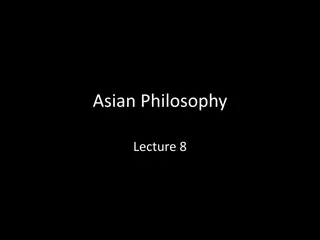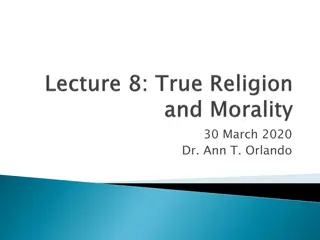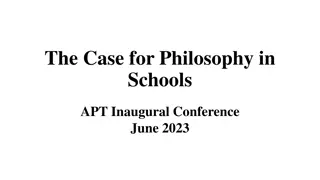Exploring the Indian Concept of Morality in Philosophy
Delve into the intricate discussions surrounding morality in Indian philosophy, exploring the distinctions made between what is and what ought to be. Compare Western and Indian perspectives on morality and examine key criteria proposed by philosophers like Kurt Baier and Frankena. Discover how Indian philosophers view morality as both personal and social, emphasizing the role of the soul in guiding ethical behavior.
Download Presentation

Please find below an Image/Link to download the presentation.
The content on the website is provided AS IS for your information and personal use only. It may not be sold, licensed, or shared on other websites without obtaining consent from the author. Download presentation by click this link. If you encounter any issues during the download, it is possible that the publisher has removed the file from their server.
E N D
Presentation Transcript
Dr. Bhaskar Jha Dept. of Philosophy Raiganj University Title of the topic: Indian concept of morality P. G. Semester: 1 Course code:1203
Introduction It is a fact that we cannot define the term morality easily because it has multiple associations. Generally the western philosophers think that there is no specific discussion about ethics in Indian philosophy. I think that this view is not correct. We find a lot of references of ethical discussion in Indian philosophy. Now I shall explain the Indian concepts about morality.
Explanation Indian sense of morality : Classical Indian philosophy accepts morality is an institution of life. Here importance is given on the distinction between whatis and what ought to be ? Presence of philosophers think that due to the presence of reason man is able to distinguish himself animals. But Indian philosophers think that such distinction is possible due to the presence of soul or tman in man. soul: Western from other
Western philosophers think that morality has a social reference. Kurt Baier s view: Kurt Baier spoke that four points may help us to determine whether one has adopt a moral point of view, or not. If a person is not egoistic at the time of work, works on principle, wills to universalize his works and considers the good for all, then it may be said that he has taken a moral stand point.
Frankenas opinion : One has to take the action as prescriptive, one may able to universalize it, the action may be regarded as definite and authoritative.
The forth criteria of Frankena is as follows: It includes or consists of judgments that pronounce actions and agents to be right, wrong, good, bad etc., simply because of the effects they have on the feelings, interests, ideals etc., of other persons or centres of sentient experience, actual or hypothetical (or perhaps simply because of their effects on humanity, whether in his own person or in that of another). Here other may mean someother or allother .
Indian view about morality : Indian philosophers think that morality may be personal as well as social. emphasis has given on personal morality. But here
The concept of ta : In the Vedas we find the concept of ta which indicates that man is bound to adopt a moral point of view. It is believed that the whole universe is guided and regulated by an eternal moral law. This eternal moral law was accepted in the g Veda as ta.
Divine origin of morality : Generally, ta was accepted as an impersonal principle which transcends the authority of Gods. Sometimes God Varu a was accepted as the custodian of ta. Thus the divine origin of morality was established in India.
The concepts of ju and Vjan, reya and Preya : It may be said that the senses of right and wrong or the sense of morality was originated in India from the Vedic concepts of ju or straight and V jan or crooked. The Upanisadic concepts reya or desirable and Preya or pleasurable also helped to originate the senses of right and wrong.
Concept of Dharma: It is believed that dharma upholds the universe from within. In Indian tradition, dharma represents the moral law of the universe. The moral life of man is regulated by this moral law. Most of the Indians accept that we are bound to adopt the life of morality because dharma as moral law upholds the universe
Subjective and objective ethics: S.K. Maitra talked about the presence of both subjective and objective ethics in India. Objective ethics deals with the questions of morality in relation to other members of the society. So it is also called social ethics. On the other hand, subjective ethics deals with the questions of morality in relation to oneself.
Self-control : It is believed that the life of every man is worthy. All man has some duties. They should follow some traits of character. Man should control his sense- organs and mind so that he canattain the higher values of life.
Morality of doing and being : In India, we find both the morality of doing and morality of being. The morality of doing prescribes us to do certain acts and not to do certain other acts. On the other hand, morality of being teaches us about virtues and sins.
Social morality : The inner being or character of a person is formed through the actions which he continuously, whether these actions may be virtuous or sinful. Social concerned with the actions that are performed by an individual in reference to the other members of the society. and individual performs morality is
Critics opinion : Critics think that morality is worthful as it teaches self-sacrifice for others. If one acts only for his own salvation, as Indians do, then it cannot be an example of morality. It can be called as prudence.It may be called individual morality. Social morality gives emphasis on the duties and obligations towards others. The critics say that as non-violence or ahi s , compassion for others are concerned with one s fellow beings, so these have social implications. But sana, indriyanigraha etc. have no value in response to others. So, these can neither be called moral, nor immoral. pr y m,
Reply : But such type of criticism against Indian sense of morality is not correct. It is wrong to accept the concept of morality in general sense and the concept of self- sacrifice in the particular sense. The basic concern of morality is that man will regulate his lower inclinations and these into the higher. promote
Conclusion : tradition understood in terms of the mandates of the authority. Here the term authority includes the Vedas, the Sm tis and sometimes wise people also. Though the Buddhists and the Jainas do not accept the authority of the Vedas and the Sm tis, yet they accept the authority of Buddha and the Tirthankaras . The action of a person will be regarded as moral if he acts following authority. Otherwise his action will be regarded as immoral. In Indian morality was
Thus we can say that Indian ethics is evolutionary in nature. From time to time the concept of morality was revised here. Here morality means both personal obligations. Here authority has given the prime importance to determine what is moral or immoral. social and


